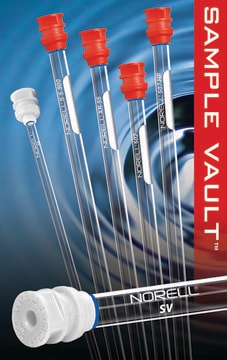17755
4-Borono-L-phenylalanine
≥95.0% (HPLC)
Synonym(s):
4-Dihydroxyboryl-L-phenylalanine, L-BPA
Sign Into View Organizational & Contract Pricing
All Photos(1)
About This Item
Empirical Formula (Hill Notation):
C9H12BNO4
CAS Number:
Molecular Weight:
209.01
Beilstein:
4458616
MDL number:
UNSPSC Code:
12352209
PubChem Substance ID:
NACRES:
NA.21
Recommended Products
Quality Level
Assay
≥95.0% (HPLC)
storage temp.
2-8°C
SMILES string
N[C@@H](Cc1ccc(cc1)B(O)O)C(O)=O
InChI
1S/C9H12BNO4/c11-8(9(12)13)5-6-1-3-7(4-2-6)10(14)15/h1-4,8,14-15H,5,11H2,(H,12,13)/t8-/m0/s1
InChI key
NFIVJOSXJDORSP-QMMMGPOBSA-N
Application
4-Borono-L-phenylalanine can be used as a building block in solid-phase peptide synthesis. It can also be used to synthesize substituted triazine derivatives as potential tryptophan hydroxylase inhibitors via Suzuki cross-coupling reaction using palladium as a catalyst.
Other Notes
Tyrosine analogue; employed for treatment of melanom cells by boron neutron capture therapy
Signal Word
Warning
Hazard Statements
Precautionary Statements
Hazard Classifications
Eye Irrit. 2 - Skin Irrit. 2 - STOT SE 3
Target Organs
Respiratory system
Storage Class Code
11 - Combustible Solids
WGK
WGK 3
Flash Point(F)
Not applicable
Flash Point(C)
Not applicable
Personal Protective Equipment
dust mask type N95 (US), Eyeshields, Gloves
Choose from one of the most recent versions:
Already Own This Product?
Find documentation for the products that you have recently purchased in the Document Library.
Tsubasa Watanabe et al.
BMC cancer, 16(1), 859-859 (2016-11-09)
Boron neutron capture therapy (BNCT) is a cellular-level particle radiation therapy that combines the selective delivery of boron compounds to tumour tissue with neutron irradiation. L-p-Boronophenylalanine (L-BPA) is a boron compound now widely used in clinical situations. Determination of the
W Yang et al.
Applied radiation and isotopes : including data, instrumentation and methods for use in agriculture, industry and medicine, 67(7-8 Suppl), S328-S331 (2009-05-27)
In the present report we have summarized studies carried out over the past five years on molecular targeting of the epidermal growth factor receptor (EGFR) and its mutant isoform, EFGRvIII, for BNCT of genetically engineered F98 rat gliomas, expressing either
C. Malan et al.
The Journal of Organic Chemistry, 63, 8019-8019 (1998)
Romina F Aromando et al.
Oral oncology, 46(5), 355-359 (2010-03-24)
Mast cell (MC) activation in the hamster cheek pouch cancerization model is associated with the increase in tumor cell proliferation, mediated in turn by tryptase, a protease released from mast cell granules after activation. Tryptase induces tumor cell proliferation through
The preparation of solid-supported peptide boronic acids derived from 4-borono-L-phenylalanine and their affinity for alizarin
Duggan PJ and Offermann DA
Australian Journal of Chemistry, 60(11), 829-834 (2007)
Our team of scientists has experience in all areas of research including Life Science, Material Science, Chemical Synthesis, Chromatography, Analytical and many others.
Contact Technical Service









